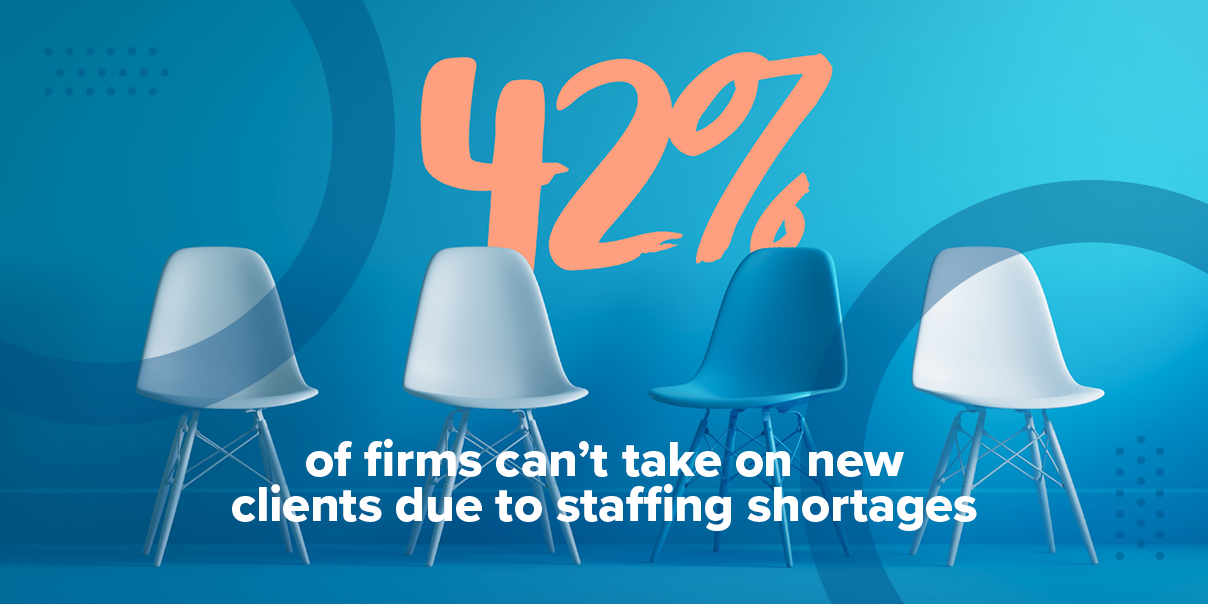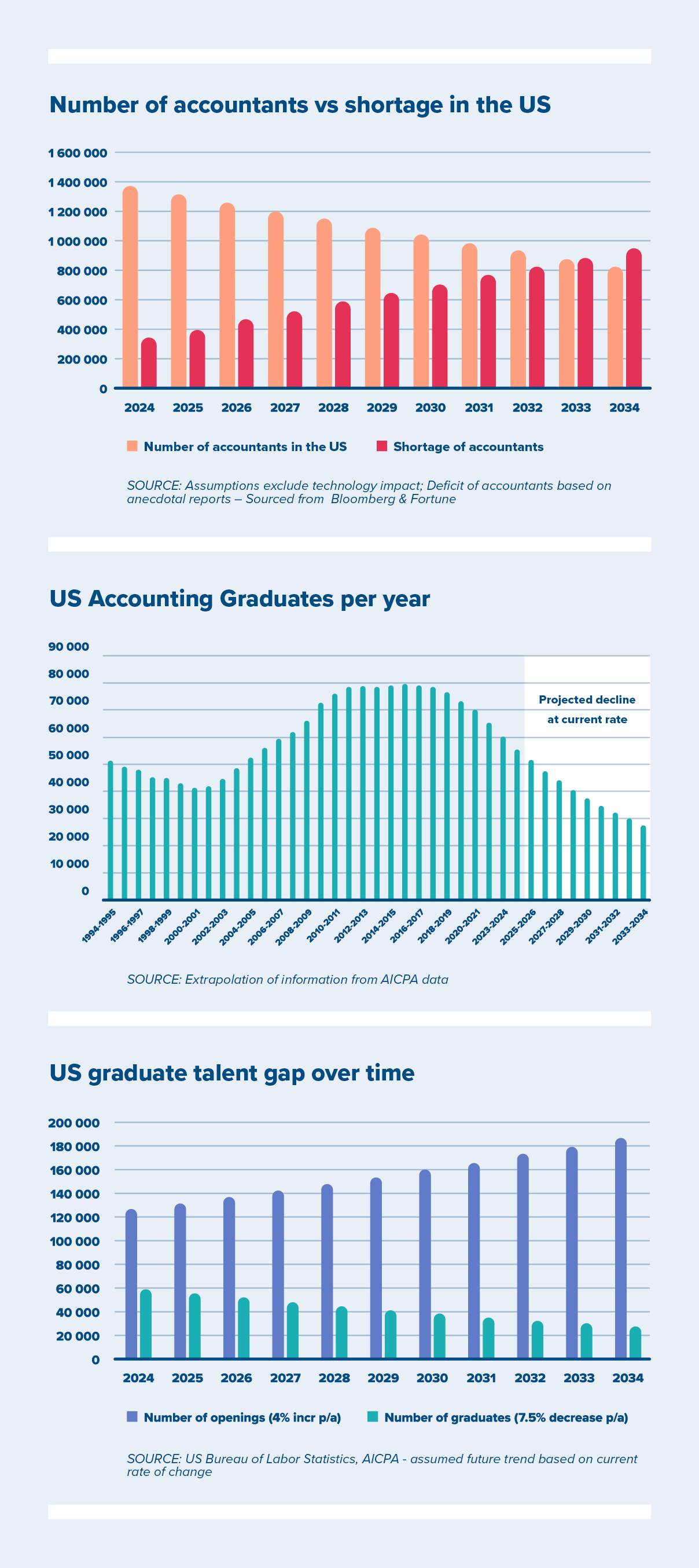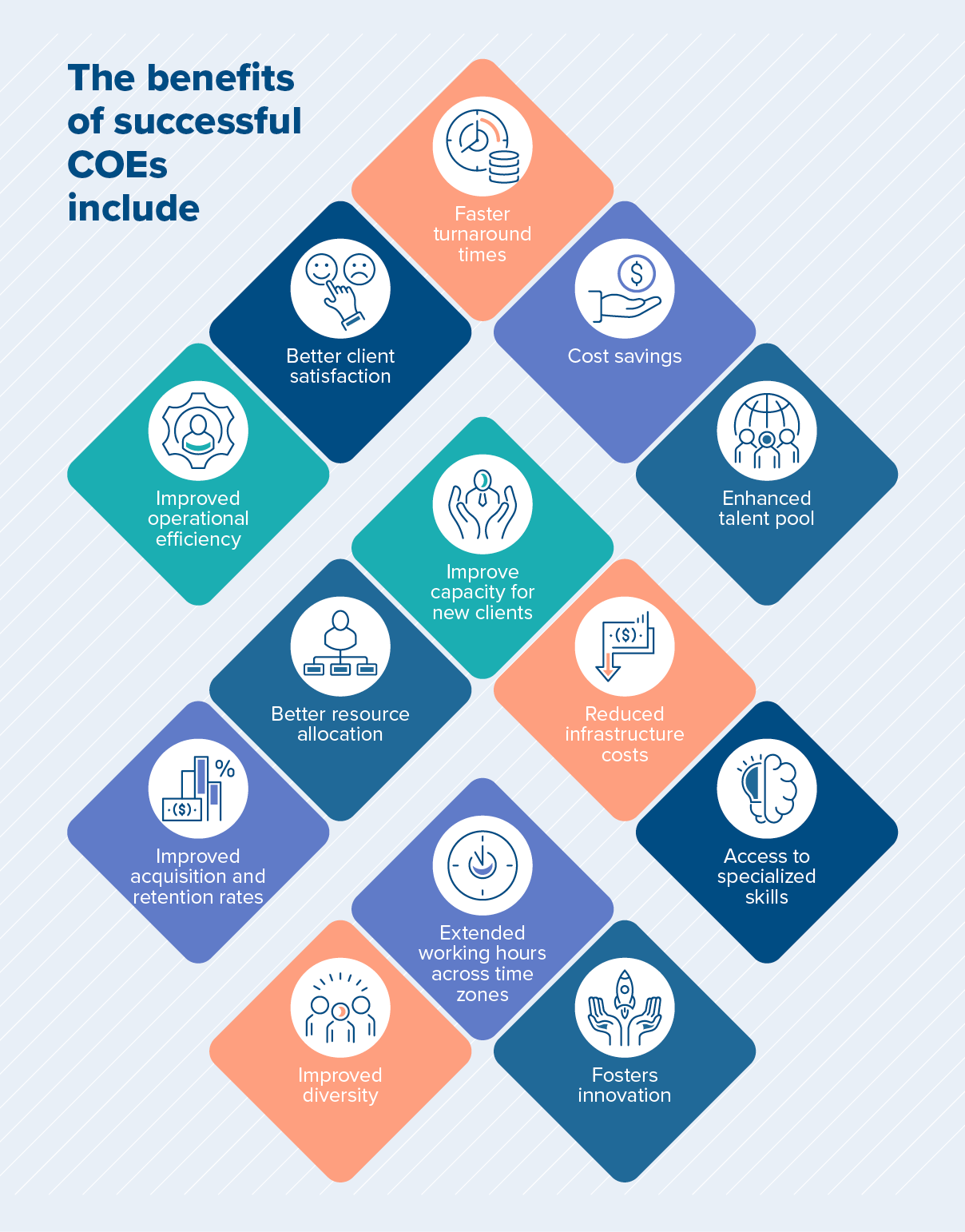
42% of firms can’t take on new clients due to staffing shortages
It really is no secret that the accounting industry is grappling with a significant shortage of skilled professionals. The talent shortage has been discussed ad nauseum in round tables, podcasts, conferences, webinars, white papers, studies, and surveys – which all come to the same conclusion: there is an expanding gap, and it seems like it is here to stay.
A collapse of the industry within ten years
While we may be aware of the problem, nothing that we are doing seems to be resolving the issue. As it currently stands, projections show that the industry will lose 60,000 accountants each year due to retirement and attrition. The number of accounting graduates declined 7.4% in the last year – and if we continue at this rate, within ten years fewer than 30,000 graduates will enter the market, creating a deficit of 30,000 professionals.

Too little, too late
Many firms are doing all that they can to slow down this rate of change. Some are working towards creating alternative paths to CPA and supporting early interest in accounting through high school internships and scholarships. Others are offering competitive packages for graduates, providing student loan support, above industry salaries, and flexible work arrangements.
Understaffed firms struggle to grow
While these measures may prove to be effective as long-term plans, many firms are challenged with talent shortages now– forced to turn away work due to a lack of skilled talent to fulfill their client’s needs. Early results from the CPA Trendlines Outlook study shows that 42% of firms surveyed are turning away work due to staff shortages. And as this talent gap continues to grow, many firms are also looking to outsource teams to regions with surplus skilled accountants– such as India, South Africa, and the Philippines.
Innovative approach to outsourcing: Centers of Excellence
While outsourcing and offshoring do have various challenges, when done well, they offer a sustainable and scalable option for firms who need skilled resources to continue to take on new clients and more work in order to grow in a competitive market.
An innovative approach to this has been the investment in offshore centers, often called Centers of Excellence (COEs) or Global Delivery Centers, that leverage the local talent pool in countries with surplus talent, bolstering existing USA-based teams to deliver more work to more clients, effectively and cost efficiently.

Managed COEs reduce your admin load – immediate access to resources to fill capacity gaps
Often just thinking about the admin of setting up and running an outsourced offshore solution puts firms on the back foot. The hurdles seem endless: finding talent, onboarding them, setting up systems and ensuring secure access, bureaucratic red tape, compliance, labor laws, office space... Which is why opportunities have opened for companies – such as SAPRO – to support firms with the groundwork that constrains firms.
A managed COE will give you access to talent, teams to provide quality assurance of work delivered, an understanding of the local labor landscape, and more – ultimately giving firms access to the one thing they need most: skilled resources on demand to fill a gap in their capacity to deliver work to clients.
Partner with an expert to capacitate your firm quickly
Key to a successful, seamless COE experience is to partner with an expert who has experience in managing offshore teams that have a track record of delivering quality work to US firms. While long-term initiatives to attract new talent are crucial, addressing the current staffing shortage demands immediate action. Managed COEs offer a practical solution for firms to bridge the gap, serve their clients, and adapt to the evolving industry landscape.
In an industry that is turbulent and going through significant changes – highlighted by the disparities seen across firms where some are overstaffed, while others are turning clients away and can’t afford to grow – choosing a partner that can help you navigate these challenges as the shortages will escalate in the near future, is vital.


|
What’s trending in the news… |

